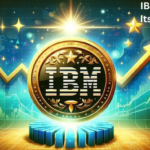Some people think of numbers only as numeric symbols In today’s society numbers can mean livelihood, convenience, and even the essence of existence.
Short Messaging Services (SMS) and Voice over Internet Protocol (VoIP) employ them, and they serve as integrative components of other internet communication platforms like WhatsApp and Signal.But numbers like these are critical to the technological base that supports virtually every aspect of our existence. This blog will explain that sequences like 6463276197 are not just random strings; they are critical conceptual building blocks upon which much of our contemporary technological environment exists.
The Role of Unique Identifiers in Technology:
Before making any discussion on the importance of unique numbers such as “6463276197”, one must learn the meaning of unique identifiers. A unique identifier serves as a reference number that primarily consists of figures but may also include letters, distinguishing an object in a system.This entity can be an object of some sort or a user or even a piece of information or even a whole network.
The problem with minimum uniqueness is the necessity to have identifiers as there can be ambiguity and all the entities in a system must be easily distinguishable. In technology these identifiers are abound. From the phone number which you use to make a call to the ID assigned to your computer, to the media access control address part of your Smartphone, the unique identifiers assist in maintaining order in our digital environment and to keep everything running as it should.
Phone Numbers: The Foundation of Digital Communication
Let’s start with one of the most familiar examples of a unique identifier: the phone number refers. As for the phones numbers, they are not just the digits to dial but the identification numbers, security codes, and key to connection in the setup of digital communication.
Take the number “6463276197,” for example: At first sight, it looks like a ten-digit phone number that possibly belongs to a resident of North American countries with the area code “646.” This number acts as much more than just a mere contact; different technological tools register phones and various numbers systems.
Phone Numbers and Identity
Many countries today rely on phone numbers as the main means of identification more so in the Third World countries. For instance, most social media accounts and financial applications need the phone number for users to create an account. This decoded number is later used to authenticate the user through the service commonly known as SMS 2FA- Two Factor Authentication.
Two-factor authentication, also called two step verification, is a security method that aims to ensure a person’s identity as the user of an account by giving two proofs of identification. Usually this is a combination of the password which is something that is known to the user and an actual code sent to a phone number, which is something that is possessed by the user. Thus, users assign high importance to their phone numbers such as ‘6463276197’ if they want to ensure their accounts’ safety from hackers.
The Evolution of Phone Numbers
The history of relocating the branded phone numbers from mere contact points to valuable digital identities is a very interesting one. At first, these phone numbers were only a means of transferring calls from on party to another. However, as the technology of telecommunications improved the function of phone numbers also changed.
Modern phone numbers do not necessarily mean calling by voice only as in the days of yore. They are employed in Short Messaging Services (SMS), Voice over Internet Protocol (VoIP) and are integrative components of other over the internet communication platforms like WhatsApp and signal. This evolution has taken numbers and cemented it to become a very flexible source of identification which is the backbone of many current communication systems.
Number Portability: Keeping Your Digital Identity Intact
The generally important issue that has so significantly emerged in the arena of phone numbers is the number portability. Number porting is the ability of the user . To take his or her phone number to another network service provider for use. This capability is important because it will enable the clients to continue with continuous number addresses . They may not be changes which may interrupt their communication.
Number portability is a complicated procedure in terms of technology. Number portability refers to the process in which a customer transfers their number from one operator to another. This process requires rerouting all calls, messages, and data linked to the number appropriately. Involving various service providers, regulating authorities, and different databases. However, number portability has become airborne in many countries, and this shows how essential telephone numbers are as permanent identifiers.
Beyond Phone Numbers: The World of IP Addresses
The first idea that comes to mind when considering the management of IP addresses. Refers to the ‘World of IP Addresses,’ as shown below.
This is because there are millions of computers in the world that use Internet Protocol, IP address and thus we cannot list all of them.
Contrary to what many prominently conceive as the ‘locked-in’ number, it is just one of many. As we are aware that the internet connection also operates in the same manner where IP addresses are as vital as the cell addresses in this world.
An IP address is a logical address that is given to every device operating in a computer network majoring use of the internet protocol. Like our phone number, an IP address only ensures that chunks of information sent to a particular location in the internet will arrive on time. No ip addresses, and we definitely did not have the type of Internet which is in use today.
IPv4 and the Shift to IPv6
There is the current version and the most established one known as IPv4 which utilizes a 32 bit number of address. It means that the given format gives the access of about 4. 3 billion distinct IP address different from each other.The emergence of the internet of things soon proved the number inefficient for managing bandwidth.
The NUM-bit addressing system in IPv6 provides nearly an infinite number of IP addresses, preventing the problem of address exhaustion.IPv6 conversion is still still under way, albeit it is crucial to sustaining the internet and making it conceivable to support additional devices.
IP Addresses and Geolocation
Of course there is another topic that is quite relevant to discussing IP addresses, and is worthy of discussion – the uses of IP addresses for geolocation. Therefore, while examining the given set of numbers corresponding to definite zones, it is possible to determine with certain amount of precision the place where the device is. In marketing, it is used in artificial intelligence ads placement or localization and anti-fraud systems.
However, the method of geolocation based on the IP address has one more disadvantage: it violates privacy. The Telefonica case illustrates that most users neglect the fact that services constantly monitor them through their IP addresses.This has therefore given rise to techniques like VPN’s (Virtual Private Networks whereby one can disguise his/ her IP address when using the internet.
The Importance of MAC Addresses in Network Connectivity
Although IPs are a great necessity when it comes to world wide web, MAC (Media Access Control) addresses are equally important when dealing with LANs. MAC address refers to a 48 or 64 bit number assigned to the network interface of a device. At the manufacturing level, we normally hard-code and assign a MAC address, while an IP address is variable and adjusts with the network.
Specific devices within a local area network receive data using their MAC addresses, ensuring that the network sends the data to the intended devices. For instance, when you browse the internet through a smartphone by connecting it to Wi-Fi, the router recognizes the MAC address of your smartphone, so it transmits data exclusively to your smartphone and not to any other device connected to that router.
The Role of MAC Addresses in Security

With this feature, the network allows only devices that have their MAC addresses included in the list to connect, while it blocks those that do not have their MAC addresses on the list.
Intruders can manipulate network identifiers, such as MAC addresses, to spoof source IP addresses on vulnerable systems and gain unauthorized access to target networks, resulting in network insecurity.
Unique Identifiers in Cryptography and Data Security
Besides their application in the communication networks, number sequences like “6463276197” can be of immense importance especially in cryptography and security of data. In this respect, unique identification is purposed to create encryption keys to safe tr
The Role of Random Numbers in Encryption
Thus, cryptography experts discuss an important principle of using random or physically random numbers to generate encryption keys. These keys are crucial for scrambling and deciphering data, ensuring that only intended users can access the information. The effectiveness of an encryption system heavily relies on the randomness of these keys – if a key is predictable, the entire system is at risk.
Besides, secure transactions and blockchain technology are critical in transforming the economy and the world as a whole.
Secure Transactions and Blockchain Technology
In recent years, people have actively implemented new technologies, mainly based on blockchain technology, to protect transactions and manage unique identifiers. The nodes or computers within the network maintain records of transactions in an open distributed electronic register called a blockchain. The network ensures that every exchange is encrypted, and once a user adds a block to the chain, no one can modify it without everyone in the network agreeing.
Specifically, in relation to block chain, entities have handles proactively used for tracking other assets, identifying people and validating transactions. Each user has a specific address that they use for securely transferring funds in the context of cryptocurrencies.
The Future of Unique Identifiers in Technology
But as technology advances more the problem of unique identifiers will become very important. Expansion of Unique Identifiers needed: Basically, the anticipation of the Internet of Things. LoT that encompass billions of physical objects. Connected to the Internet will lead to the need for vastly expanded unique identifiers. Every smart thing is going to require an IP address, a MAC address. Possibly other addresses that will help it communicate correctly in the network.
Furthermore, there would be improvements to new policies that could impose further gazelle identification. Increased concerns of privacy and security would advance better techniques for managing and protecting unique identifiers. Using the blockchain, we can implement a more effective approach for handling identifiers. Its decentralized nature and immutable history records make it more suitable for this task.
Conclusion
The randomly chosen number “6463276197” symbolizes an enormous world of tech identifiers, which form the foundation of the contemporary digital environment and drive communication and data protection worldwide. In the future, people will rapidly connect the world, and identifiers will become central to modern society and economy. Their management will be essential.
FAQs: Decoding Technology’s Unique Identifiers
1. A tech ID: What is it for?
A unique identifier is a set of numbers any combination of alphabets and number which uniquely defines identity of an entity for a particular system. This can be an object, a person, a data or a network depending on the nature of the system that it is to support.
2. That takes us to the issue of whether unique identifiers are useful in the first place.
In fact, a system requires actual unique identifiers to provide methods. Which distinguish an entity from other entities in a certain context. They help in the structuring and administration of systems. They clarify the distinction between the various devices, the user and the data.
3. It may be appropriate to provide examples of what can be regarded as more typical and, at the same time, more frequent instances of the use of unique identifiers?
These include phone numbers, IP addresses, MAC address, SSNs and UUIDs if one is developing software.
4. How we can think that phone numbers as an identifier?
The phone numbers are not only used for making a call but can be used as identification details. or security purposes like the 2FA, recovery options on almost all the online platforms.
5. What is intended by; Internet Protocol addresses and why they are important?
IP addresses are special numbers that identify individuals and stations connected to networks using Internet Protocol. Some of these services ensure that they deliver messages sent over the internet to the intended recipient. Making them extremely important for conveying messages online. An entity can distinguish itself from other entities in a certain context.
6. Explanation to the terms IPv4 and IPv6?
IPv4: also referred to as the Internet Protocol Version 4 it supports 32-bit addressing and it provides roughly about 4. 3 billion unique addresses. IPv6 is the newest one and its format is 128 bits. Therefore it is possible to develop much more unique addresses than IPv4 because of the increased usage of internet enabled devices.











